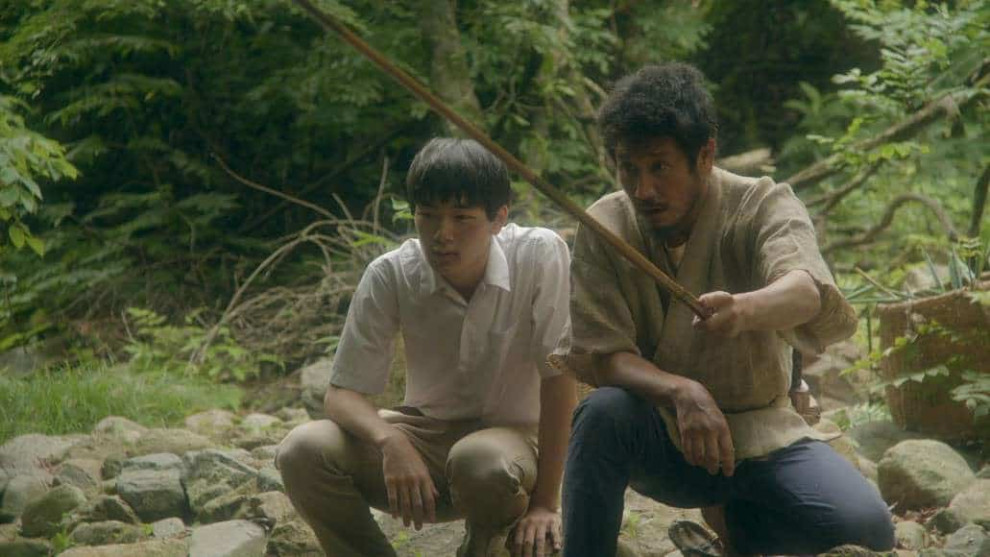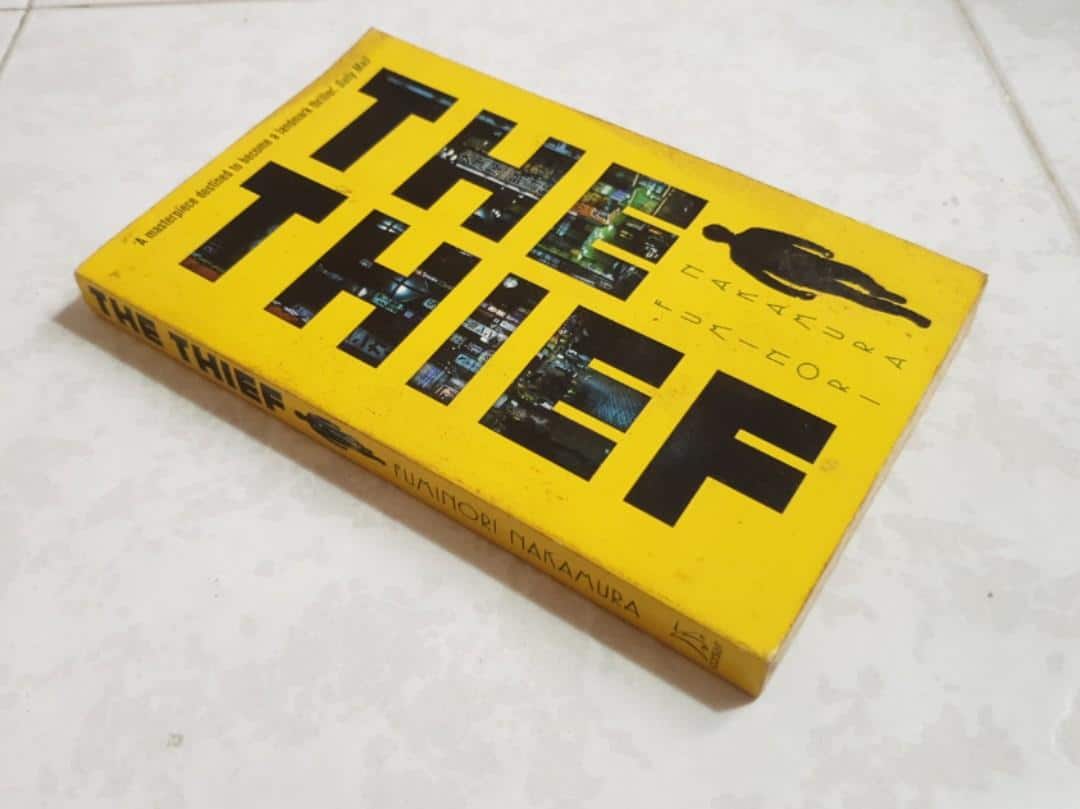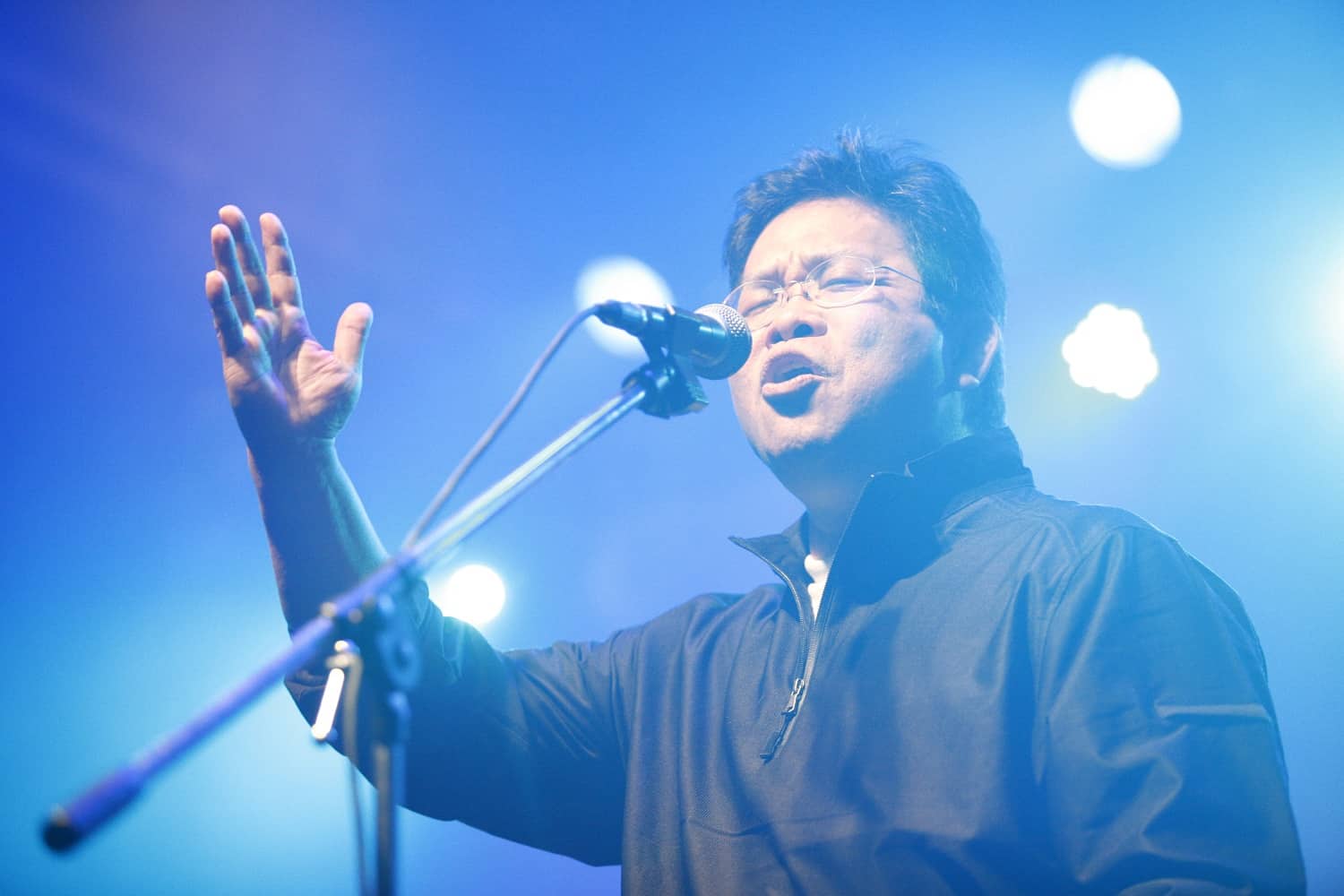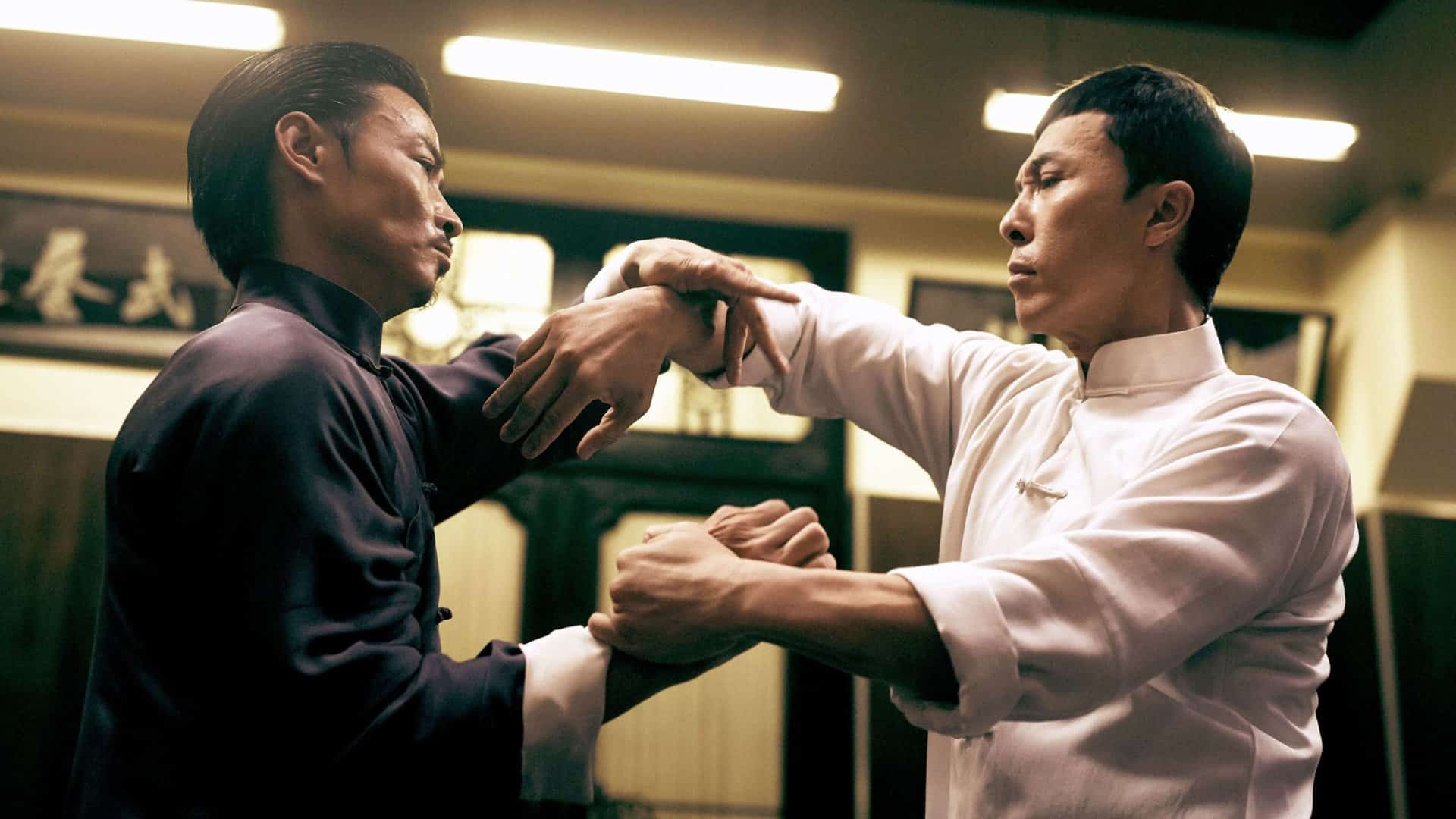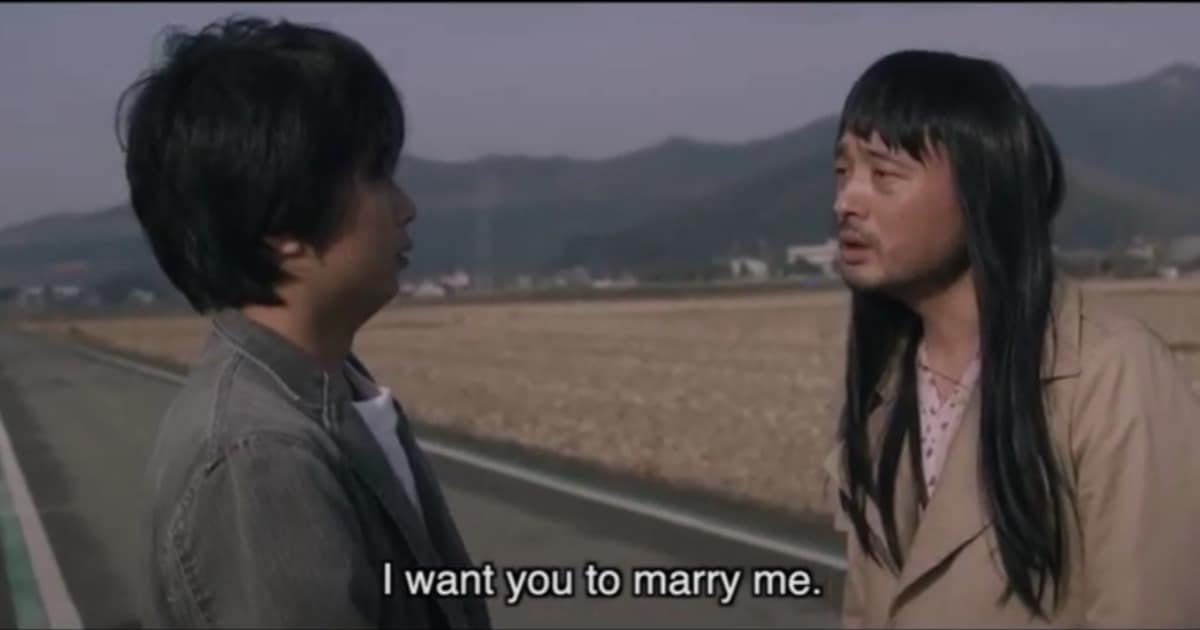The story of Sanka is not something from another country. They lived in Japan and had the technical ability to mend tools such as the winnowing baskets used in agriculture. They went from farm to farm and received food such as wheat or rice in exchange for their mending work. They made their homes near riverbeds or in the caves of cliffs, fished in rivers, and washed themselves there also. They were drifters that lived in family units. […] After the 1960s, they suddenly disappeared. […]One of the reasons for their disappearance could be that tools like winnowing baskets and others that were used by cultivators and were their livelihood are no longer used. Also, forests, rivers and plains where they used to live freely had disappeared under the waves of development. They must have started having problems like landowners that wouldn't allow access to their property to strangers. (source: https://globalvoices.org/2011/05/05/japan-sanka-legendary-gypsies-living-in-the-wild/)
Ryohei Sasatani deals with the aforementioned, very rarely visited concept, through a coming-of-age movie that is, however, so much more.
Sanka: Nomads of the Mountain is screening at Osaka Asian Film Festival

The story takes place during the 60's and revolves around Norio, a high school student, who has moved from Tokyo, with his father, to his grandmother's house in the mountains, in order to have more time to study. His father is considered a hero for the village, since his manufacturing company has recently undertaken a significant project, of turning a large part of the mountainous forest to a golf course. Norio's mother died in the mountains some years ago, and the relationship between father and son is quite tense, particularly since the former pressures Norio intently to study and get to a good university. One day, Norio stumbles upon Shozo, a Sanka, his daughter, Hana and her grandmother, who eventually fill all the gaps he had in his life. The clash with his father, however, is inevitable.
Ryohei Sasatani directs a very sensitive and delicate film that unfolds in two axes: the coming-of-age one and the one revolving around the Sanka and the reasons that led to their demise. The first aspect revolves around Norio, who is portrayed as a teenager completely lost, living a life he does not want to, under the pressure of his father. His discomfort is evident in every move and word, while the fact that he is bullied at school and seems to have no friends, also add to his issues. As time passes, it becomes evident that the gap his mother left is too big, with the boy feeling the lack of family intensely, particularly since his father is mostly absent, and even when he is present, the only thing he does is pressuring him. This pressure also derives from the fact that the people in the village consider him a hero, and in essence, expect Norio to show the same level of excellence. His grandmother does his best to soothe him, but it is evident she cannot succeed.
This gap and the need for some relief of pressure is soon covered by the three Sanka, whose carefree ways and connection with nature resonate intently with Norio, who finds himself attracted to their ways and their inherent kindness. In that fashion, Shozo soon becomes a fatherly figure, Hana, a friend, and the grandmother, a symbol of all that could be but will not happen.
The interactions between the four comprise of the largest part of the narrative, and benefit the most by the excellent acting, with Rairu Sugita as Norio, Kiyohiko Shibukawa as Shozo and Naru Komukai as Hana being excellent in their parts, while also highlighting their chemistry.
The second axis revolves around the ways of the Sanka, who are portrayed almost as magical creatures, whose ways, however, seem to have no place in a Japan that was experiencing an intense financial growth at the time. Their frustration becomes palpable, with Shozo trying to hide it not to upset Hana, and her being more vocal about it, particularly towards Norio. In that fashion, Hana's coming of age issues are even more significant than Norio's since her options are to either change life completely or perish. These elements and the psychology of father and daughter are presented in a very sensitive fashion, with Sasatani implying them or giving glimpses of them instead of “shoving” them to the viewer, in one of the film's best traits.
The radical difference of what Shozo and what Norio's father represent (progress and goal-oriented mentality through intense competition against finding happiness in simple things and the connection with nature) present the choices Norio has to make, but inevitable lead to a clash, in the most impressive and agonizing scene in the film. Sugita's performance in this sequence is the highlight of his performance and of the whole film in essence.
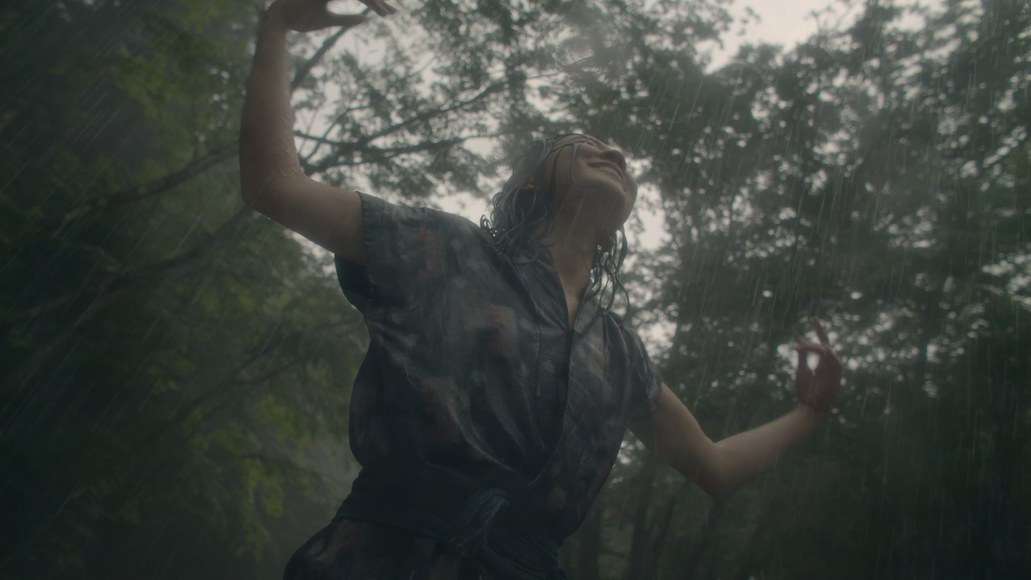
The cinematography of the movie is also excellent, as it takes full advantage of the bucolic setting to present a number of images of extreme beauty, while focusing on realism. However, the sole sequence that is imbued with a ritualistic, surrealistic and naturalistic essence is probably the most impressive, visually in the movie, along with the one with the dancing. Furthermore, the fact that Sasatani does not dwell on the forest and its general concept (as Naomi Kawase occasionally does, for example) works excellently for the narrative, which is stripped from any kind of pretentiousness. The excellent editing also helps in that regard, since it does not “allow” for any unnecessary scenes, without stripping, though, the narrative of its impact. The pace, which is relatively slow but does not lag in any way also helps in that regard, in a rather economical movie that manages to present all its context in less than 80 minutes.
“Sanka: Nomads of the Mountain” is an excellent movie, a true gem of Japanese cinema and one I feel everybody should watch.


